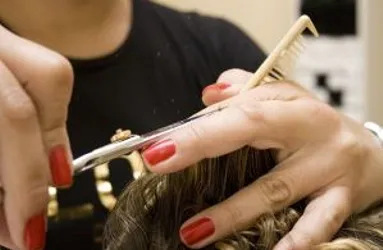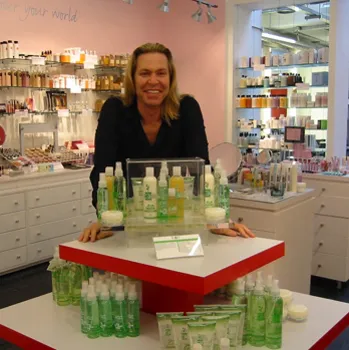
Hair Salon Treatments: 8 Hair Saving Questions!
Introduction
Yes it's true. The expertise of the hairdresser, your own expectations, various products used and overall excellence of the salon all play a part to the ultimate success of hair salon treatments. If you wish to save your hair and minimize hair salon treatments ask the following key questions the minute you arrive at the salon and meet your hairdresser. If you do, you can probably avoid a lot of post-salon bad hair days. Clip and save these hair saving questions:1. What Service (s) Are You Planning To Do To My Hair Today? Ask your hairdresser to tell you in as much detail as possible what techniques they will be performing on your hair.
Even if you think the hairdresser clearly knows what you want, or this is a hairdresser you've been going to for years, always ask for details. It's better to be 100% positive you and your hairdresser are on the same page than to risk hair disaster. I personally made the mistake of not asking basic hair treatment questions. Although I thought it was clear I was at the salon to receive foil highlights, my hairdresser suddenly slapped darker hued dye all over my head before I even knew what was really happening. In retrospect I realize I should have clearly gone over my highlighting expectations with my hairdresser before I let her touch my tresses. I was sure I had asked my hairdresser for foil highlights. I was also very sure she acknowledged my request. Thinking she would highlight my hair like she had done for years, I zoned out. Big mistake. Somehow my hairdresser heard something completely different which resulted in her slapping dark brown color on my baby blonde strands. Yes, I know my true hair horror story is a stretch but based on my email, it happens a lot more often then you might imagine. Avoid your own hair trauma by asking for a recap of what you can expect at the salon for your visit. 2. What Is My Long Term Commitment To This Service? If you're about to embark on a brand new salon journey involving chemicals designed to alter your color or texture, ask every possible question you can imagine about the long term impact of the service. Some optional questions might include:
3. What Type, If Any, Risks Are Involved In This Treatment?
Asking about any risks to your hair is always a very important question. Chemical hair treatments such as perms and texturizers may seem to be a success after the initial treatment but may quickly become problematical. Thermal Reconditioning (TR) or chemical hair straightening services may not always achieve perfect stick straight strands. Relaxing your tresses versus straightening your hair may not also produce the expected results. Since everyone's hair reacts differently to chemical treatments, the risks need to be understood for your specific hair type, texture and current condition. If your hair is previously color or chemically treated, adding a new or additional chemical treatment can potentially have some long term risks such as hair breakage, thinning or long term related damage. When in doubt ask clearly and concisely for additional details. If your hairdresser gives you an answer and it doesn't feel right, ask for additional clarification. Be prepared to continue to discuss your concerns until you feel comfortable with the answers. Don't be afraid to change your mind at the last minute. After all, you have to walk around with your hair, your hairdresser doesn't. 4. What Other Hair Treatment Options Can Achieve The Same Results? Although you may have your heart set on chemically straightening your super curly tresses, it might be possible to combine a custom designed cut with specific styling tools and/or products to effectively relax or straighten your curls without using any chemicals. Or you might opt for a more gentle relaxer rather than a major chemical straightener. Of course in some hair situations, your end goals might only be possible with the hard core chemical treatments. Rather than expose your hair to chemical treatments which might not be necessary for the long run, ask what your other options might exist. This information will provide you with the options to be well informed before proceeding. 5. Are There Special Tools Or Products Required?
To extend the life of new hair colors, highlights or lowlights, color extending shampoo and conditioners are often recommended. Home hair care habits can either speed up or slow down the loss of new color. Ask for details on how to care for any new hair treatment before you proceed. This allows you to understand your long term financial commitments for maintenance and post-salon care. Hair straightening treatments require the regular use of straightening irons. Ask your hairdresser for a recommendation of the best tools to minimize long term damage and maximize the effectiveness of the salon treatment. 6. What Are Known Side Effects? Some chemical treatments will cause hair to become extremely dry and/or brittle. As a result, your hair may require accelerated use of deep conditioning treatments. It's also possible chemical treatments might cause extended hair shedding, development of extensive split ends or other reactions. In some rare cases, chemical treatments might result in scalp sensitivity. Ask your hairdresser what might happen in a worst case scenario and what your treatment options would include at that point. 7. What Can I Expect Long Term From The Treatment Application of chemical treatments may cause strands to become more dry than normal. This may require accelerated use of deep conditioning treatments. Other chemical treatments such as thermal reconditioning or perms might impact how your natural hair grows in at the roots. Ask your hairdressers for suggestions on how to deal with any long term results of the hair treatments you are receiving. 8. What Should I Do If Problems Develop
Although it's rare, some chemical treatments can cause allergic reactions after you leave the salon. Potential reactions include the development of scalp tingling, itching or burning. Other reactions include the development of skin rashes, swelling or the development of burn blisters. Cover these possible situations with your hairdresser and inquire what actions you should take if a reaction occurs. Ask for after-hour contact information for your hairdresser in case you do experience any emergency reactions. Yes, this type of reaction is very rare, but be prepared just in case a problem does occur. If you do experience any type of reaction from a chemical hair treatment, always call your primary health care physician for consultation. SummaryThe key to success at the hair salon is asking all the right questions and feeling comfortable with the answers. Don't be embarrassed to jot down notes or ask the same question in different ways to achieve a crystal clear answer. You may also wish to ask for references of your hairdresser's current clients. Even better, you might consider taking time to research any salon treatments before you hit the salon door so you are clear what to request and what to ultimately expect. If you do your homework, communicate well with your hairdresser and pay close attention during your salon treatments, you will minimize the risk of any nasty hair surprises when your salon time is over. | |||||||||||||||
| If you want to talk more about this or other hair care articles on HairBoutique.com or anywhere else, please post a message on HairBoutique.com's Hair Talk Forums.
|
Social Media Network Information
Please follow us on Twitter at: https://Twitter.com/HairBoutique. I look forward to meeting new people from all walks of Twitter and learning from their Tweets.




















